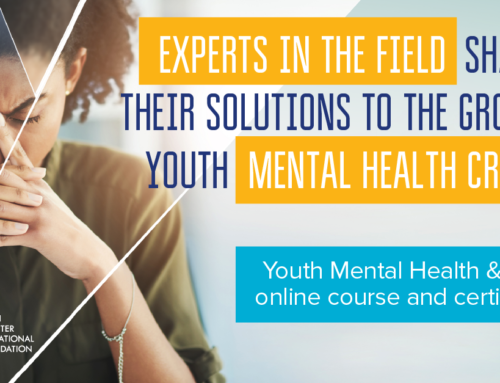
Being a teacher in today’s world is undeniably challenging. More and more teachers are being fired because they got “caught in the culture wars,” says The Washington Post. On top of all the duties involved with having a classroom full of children to teach and nurture, teachers are pressured by government-run unions to teach things like Critical Race Theory and gender ideology.
Sometimes it feels like the cards are stacked against public school teachers’ freedom. Between intrusive unions, the lack of structure, and the low academic standards in the public school system, there’s a lot to be desired. There are teachers who want out.
Maybe you’re one of those teachers. And perhaps you’ve also thought about the potential of moving to a private school, a place where the government isn’t so involved.
The idea sounds good. But there are specific obstacles that come along with being a private school teacher, and some of them are things that public school teachers never even have to think about.
Today, we’re going to talk about those drawbacks, as well as the benefits of being a private school teacher. And we’ll answer the question: do private school teachers actually have more freedom?
Unions and Teacher Support
Many believe schools aren’t focusing on education anymore. Rather, today there is overwhelming evidence that the focus is on teaching ideology, and teachers’ unions are at the helm. Often, teachers’ rights are squashed by big unions who push them to teach a certain agenda in their classrooms. And it’s hard, if not impossible, to say no. Unions have benefits, like insurance and pensions.
Financial security is a wonderful freedom, and public school teachers do often have more benefits compared to private school teachers.
Big unions such as the AFT aren’t found in the private school setting. In fact, “Some independent schools have internal teacher associations but there is no independent school teachers’ union,” says the NAIS. The NAIS (or The National Association of Independent Schools) itself is a nonprofit organization that provides many resources for schools and teachers across the U.S.
Many private schools are affiliated with a private school association and have access to financial benefits, although these benefits may not be as appealing as the ones offered to public school teachers. Yet, private school teachers still have the opportunity to get the support and resources they need even if they are not part of a school union.
Private School Teacher Involvement
Do you want the freedom to have a closer relationship with your students? Then you might appreciate the environment a private school offers.
Private schools have enrollment limits, since they are usually working with a smaller budget and smaller groups of staff. That means smaller classes, which means you’ll have more time one-on-one with your students and get to know them as individuals.
Speaking of which, tailoring curriculum and lessons to each child’s needs is something most private schools take seriously. Yes, that does mean that you’ll have more responsibilities when it comes to lesson planning, but there’s an upside. If you enjoy teaching but are frustrated with the tendency to “teach to the test” in public schools, you’ll find a lot of freedom in that many private schools are not required to follow state-mandated testing. School of Education observes that, “This means private school instructors have more freedom when creating their lesson plans, allowing them to implement more creativity and stray from the test-driven priority that is common in state-mandated curriculums at public schools.” This doesn’t go for every private school, of course—prep schools, for instance, need to focus heavily on test scores. The level of attention that is given to this subject varies, so keep that in mind when you’re looking for a job in the private school arena.
And don’t forget, being a private school teacher means collaborating with parents. Private schools encourage parental involvement and cultivate their authority over their child’s education, and that can be a good thing! Parents want to know their child’s teachers and that gives you a great foundation for understanding a child’s home environment, parental concerns, and their goals for their child’s education.
Education Requirements For Private School Teachers
You’re a dedicated educator, and wish to be one, but maybe you don’t have the traditional teacher experience or college education. It can be hard, in that case, to find a job in a public school setting.
But that’s one of the great things about private schools. You can find many private schools that don’t require certification, a license, or even a specific degree. “Many private schools value degrees in related fields, work experience, knowledge, and natural teaching abilities over a certification. It’s true that it does vary from school to school, but many private schools look beyond the teaching certificate or degree in education,” says ThoughtCo.
You may just have a passion for children or education. You might even have great experience in some field you think may be unrelated to education, but has given you skills that you want to utilize. Don’t discredit yourself! Private schools are looking for people like you to fill their teaching roles.
Aligning Your Career With Your Faith Or Values
If you have specific religious beliefs or core values that you stand by, looking into becoming a private school teacher is an awesome choice. While many people are concerned that the influences on public schools are making them increasingly adverse to Christian or conservative values, on the other hand, many private schools seem to swing the other way and even advertise that religious or traditional values are their goals.
The Council for American Private Education reports that 78% of private school students go to a religiously affiliated school. Since the majority of this percentage is composed of Christian schools, if you are a Christian, that gives you a good chance of finding a school that is connected to your denomination or has similar values.
But what if you aren’t religious? Does that mean you won’t get hired at a Christian school? Not necessarily, but every school is different. Some have strict requirements, and others have loose rules. You may even be able to opt out of teaching certain classes or subjects if you can’t teach them with conviction. Explore each school’s requirements individually.
And if you don’t wish to be affiliated with any faith in particular, there are still many secular private schools out there. But private schools are almost always very conservative, take a traditional approach to education, enforce strict discipline, and have certain core values, so bear that in mind.
Restrictions Private School Teachers Must Consider
The freedom private school teachers have is tempered with some restrictions and challenges. For instance:
- Private school teachers have to chip in. “Private schools don’t receive the state and federal aid that public schools do, so tuition and advancement (fundraising) are cornerstones of the private school budget process,” says HeyTeach! That means you’ll be asked to help with fundraisers and other marketing activities, things that public school teachers don’t have to worry about.
- There are monetary benefits to working at a public school and being part of a teachers’ union which private school teachers cannot access. Private school teachers usually get paid less and have restricted access to insurance benefits, retirement plans, and legal support.
- It may go without saying, but there are fewer jobs in private schools available for teachers. Plus, the variety of jobs and demand for teachers within the private school sphere is also smaller.
There are some things that need to be thought about long and hard before you can come to a decision. Weigh the pros and cons. Every job has them, and it all depends on your personal preferences, needs, and concerns.
Freedom…or Not?
Do private school teachers have more freedom? It seems that there are two sides to the coin. What’s important to you? What do you value and where do you see your career headed? Are you happy with that, or would you like to change? All of these questions and more must be considered when you compare teaching in public school to teaching in private school. There’s no easy answer; really, it’s all in the way you look at it.
If you’d like to learn more about teachers’ freedoms, check out our article on public school teachers’ religious freedoms. Or listen to our podcast episode on freeing teachers from usurping unions.
This is the first part of a series on private schools. Read part two and part three.





[…] the final part of our three-part series (parts one and two), we explore the affordability of private schools and how to make prices cost-effective for […]
[…] is part two in a series on private schools. Read part one and part […]
[…] Do Private School Teachers Actually Have More Freedom? […]
[…] the final part of our three-part series (parts one and two), we explore the affordability of private schools and how to make prices cost-effective for […]